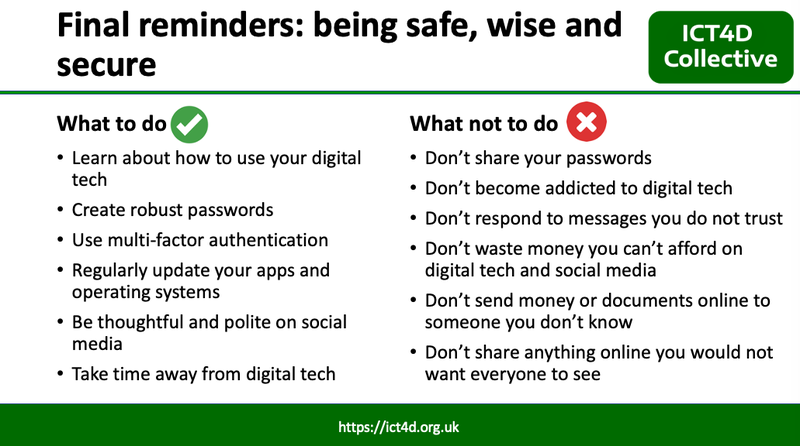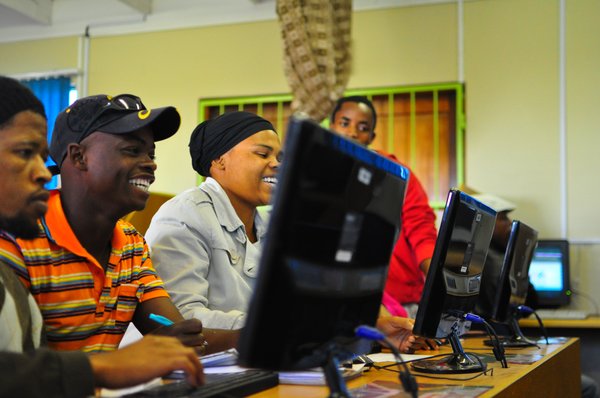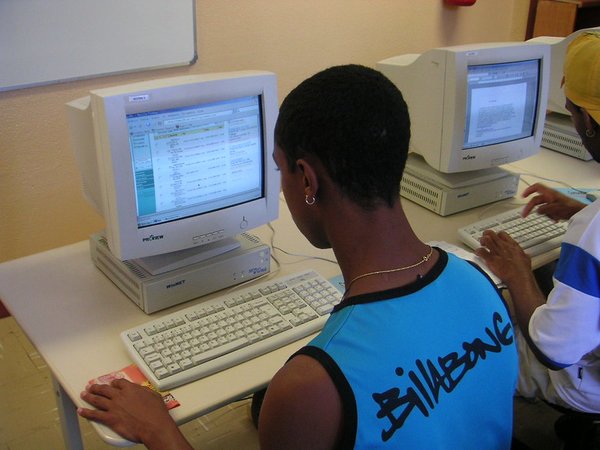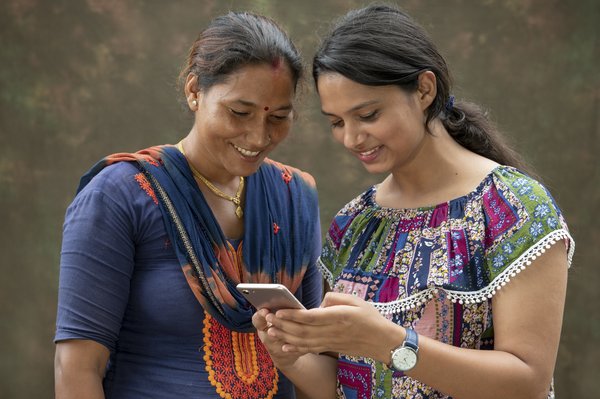Adapted from a UNESCO Chair in ICT4D page which first appeared on 15 February 2024.
MIDEQ is delighted to share that the training resources on the safe, wise, and secure use of digital tech for migrants, initially crafted in Nepal by the MIDEQ digital technologies team, have been effectively utilised by partners at the Domestic Workers Association Zimbabwe (DWAZ). Mendy Lusaba, the founder of DWAZ in 2021, utilised these resources, adapted for women in Southern Africa, to train 1911 members across Zimbabwe, South Africa, Botswana, and Namibia.
In collaboration with Mendy and other partners in South Africa, the resources were tailored to address the unique needs of women and girl migrants, with a focus on enhancing digital literacy and security (watch this short video where she speaks about this). The training includes a slide deck and guidance notes, freely available under a CC BY-SA licence, designed for individuals with limited prior knowledge of digital tech. The initiative aims to empower women and girls in Southern Africa against online threats such as sexual harassment, scams, bullying, tracking, exploitation, fake news, and identity theft. During the MIDEQ partner meeting in Johannesburg with Mendy, her insightful observation about the scarcity of digital literacy training in the region prompted the adaptation of resources. As the MIDEQ digital technologies team continue to refine and expand, they are currently working on a Portuguese language version for Brazil, adaptable to countries like Mozambique and Angola.
Everyone is vulnerable to the many harms enabled through the use of digital tech, and it is very important that these are mitigated so that people can indeed benefit from them. The training deck is designed for people with little previous knowledge about using digital tech, and includes specific guidance on how to avoid these harms. It was developed together with migrants and migrant organisations, and combines this practical approach with existing good practices recommended in the relevant literature.

Should anyone use these resources, they must contact the team beforehand, to share suggestions for how the material can be improved, and satisfy the requirements of the CC BY-SA licence.



